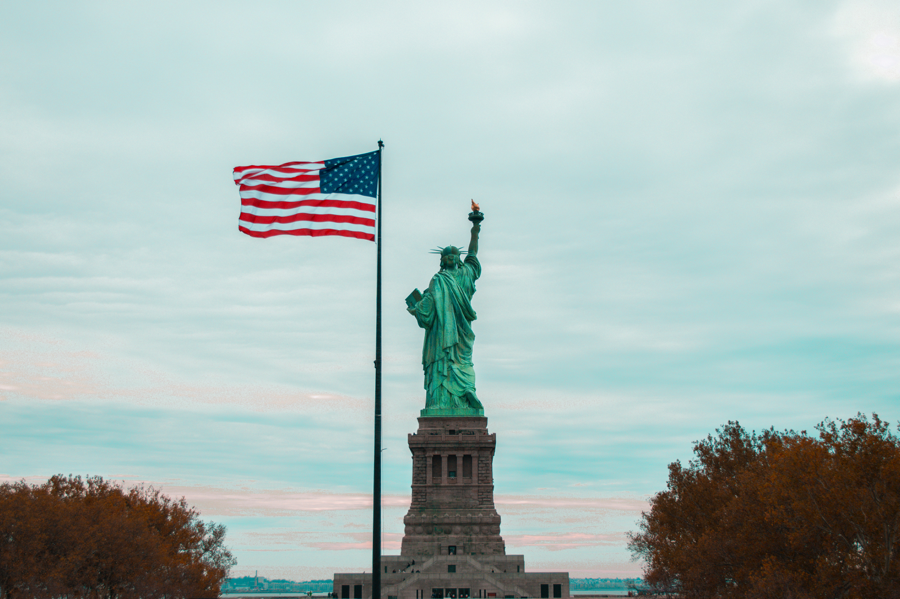What follows is a thought-provoking guest piece from young journalist Polly Nash. I’m fascinated by the power that the ‘American Dream’ has over the populace. The idea that there is equal opportunity for all and that if you work hard then you can achieve your wildest aspirations. Powerful stuff. Yet, in reality, this doesn’t play out. The concept of American individualism is archaic and certainly needs refining in the present era. Polly’s blog is a superb read on this topic and hopefully inspires you to do some wider reading of your own. LW
=
Once a guiding force of social mobility and meritocracy, American individualism is being exposed as dangerous in the age of coronavirus. It has become increasingly clear that humans are deeply interdependent beings, whose ability to stop the pandemic will depend on a collective effort by all members of society. The care and empathy that this demands are not traits that the president of the United States seems to possess. Donald Trump’s unabashed individualism may have found a receptive audience in 2016, playing on the rhetoric of the ‘self-made-man’ so revered in American culture. But Trump’s brazen egotism has reached absurd new heights, distorting what was once a philosophy of personal liberation and self-determination into a selfish doctrine inspiring careless behaviour during the pandemic.
‘Never in history has there been a land that has been so oriented to the wish of the individual’ – Tocqueville
The longstanding ideological tradition of individualism in America dates back to the social struggles of medieval Europe. The ‘New World’ was a place of personal liberation where the old order of European feudalism had been abandoned. The right to self-determination fuelled the rise of industrial capitalism and a uniquely American spirit of enterprise emerged. The model of individualism stimulated creative energy among millions of entrepreneurs, artisans and farmers. Immigrants found hope in the mythology of the American Dream, and flocked to a land where they could climb the social ladder and shape their own destiny.

F. Scott Fitzgerald’s protagonist, Jay Gatsby, is perhaps the most illustrious literary embodiment of the American self-made man. His dream of winning Daisy’s love and acceptance is symbolic of the American Dream itself, which comes to define Gatsby’s entire life. Steered by a cultural veneration of material success, Gatsby devotes himself to the accumulation of wealth and all its glamour, which he believes will win him social acceptance.
Yet Gatsby’s struggle is ultimately futile, and Fitzgerald’s novel highlights the dark underside to the glittering American Dream. There lies an inherent contradiction in the promise of equal opportunity founded on personal responsibility for success. Believing that the path of one’s life can be single-handedly shaped by personal will, grit and determination allows no room for socioeconomic forces, or mere blind fate. The dispossessed are encouraged to look inward and see deficiencies in themselves rather than in the social order. In such an environment, the interests of others are always potential threats to one’s own success, measured by the criterions of personal wealth and property.

In 2012, Obama made a speech declaring, ‘If you were successful, somebody along the line gave you some help. Somebody helped to create this unbelievable American system that we have that allowed you to thrive.’ Contrary to the ideals of the American Dream, Obama was highlighting the central role that society plays in achieving personal success. Many conservatives were outraged and offended by the suggestion that their individual wealth was not solely the result of their own hard work. And this is exactly where the individualistic philosophy has been politicised and dragged to the right. By refusing to recognise the instrumental benefits of structures such as a national healthcare system and a welfare state, the current administration has failed to properly respond to the virus and protect their citizens.
The pandemic has disproportionately affected the poor and vulnerable all over the world, but the growing inequality in America is particularly shocking. Without the welfare safety nets of France or Germany, or the public healthcare of the UK and Canada, Americans who find themselves out of work are likely to also lose their healthcare coverage in the middle of a medical emergency. Inadequate protections for blue-collar workers also leaves large numbers of people on low pay at an increased risk of contracting Covid-19 at work. Unable to claim for paid sick days, many workers do not have the financial luxury of staying at home. And with coronavirus cases in the US hitting a global record of 8.5 million since March, they are risking their lives everyday.

Donald Trump may have won his personal battle with the virus, but he continues to endanger those around him by disregarding simple regulations. The president delights in mocking Joe Biden for his mask-wearing habits, as if following the rules to protect his fellow citizens somehow reveals individual weakness. But Trump’s callous approach to the pandemic is beginning to impact his battle for the presidency. When going to the polls next week, Americans should think of the greater good, and remember the words of John Donne…
‘No man is an island entire of itself; every man
is a piece of the continent, a part of the main’

